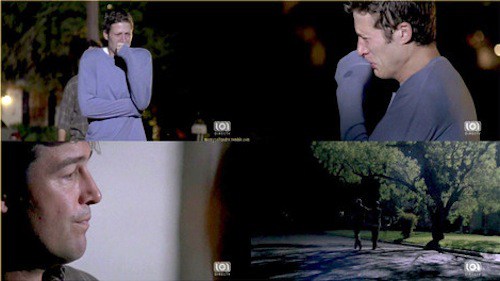
The proper definition of “grief” is (according to dictionary.com):
- Keen mental suffering or distress over affliction or loss; sharp sorrow; painful regret. 2. a cause or occasion of keen distress or sorrow
While I wish it were otherwise, grief is something that most of us have felt at one time or another. Grief is one of those classic human experiences symptomatic of brokenness—ours and the world’s around us. Grief overwhelms the entire body; you can feel grief course through your veins, move through your joints, sound from your vocal chords, bear down on your mind, and burden your back.

The grief I’ve experienced has always left an indelible mark. Grief changes us, often in radical ways. There is a tremendous amount of power in grief and in grieving, a power so significant that when repressed, it causes emotional, mental, spiritual, and even physical turmoil. Just Google “suppressing grief” and a myriad of links will pop up. I looked at a few. One website discusses at length the negative effects suppressing strong emotions (like grief) has on our whole being: system wide dysfunction and disease, injury to the body, causes the person to be less capable and responsible, can deform the body, fatigue, and disconnection from the world. Another website discussing the suppression of grief simply says, “When the emotional content reaches some kind of critical mass, it will explode.” Like I said, there’s a tremendous power in grief.
But this is nothing new. We all know this. Don’t we?
Then I have to ask, why do we rush in to silence it? Why do we repress it?
Because it’s scary.
Grief is such a powerful force that we are terrified of it. I’m a logical person; as in, on the MBTI index, my T (my thinking function) is firmly planted as far away from the F (feeling) as it can be. My rational thinking function fears that irrational emoting function. Feelings are uncontrollable, ugly, messy, and I like things neat. I have often joked that my “T” has my “F” bound and gagged and stuffed in a closet. Feelings? What feelings? *shivers*

Yet you and I are not that different when it comes to the stronger emotions like grief. We all fear it. Grief is untamed; it reduces the most erudite of us to mere toddlers. Bipedal creatures pushed to all fours; speaking creatures only able to utter to unintelligible sounds; intellectual creatures trapped in the tentacles of the irrational.
And so we silence it. We shhhh it away with distractions, trite there-theres and it’ll-be-okays. Some of us run from those who are mourning, scared their sorrow will get on us like mud. Some of us run from ourselves when we grieve, scared to see that the mud is actually there. We fear grief so much that when a small child trips and falls, we parents are quick to jump in, alleviate the pain, smile, and eliminate the potential that the child may and will cry.
But grief needs an outlet. The child needs to cry.
The Gift of the Present
No matter how big or small the source of the grief is, it needs to come out. Grief interrupted is like someone ripping the comforter off you while you sleep and exposing your warm body to the harsh cold of your bedroom.
While many of the websites found on the Google search above proffer significant ways to deal with grief, I know of none more reliable than faith in Jesus himself. I’m not talking about the always-be-joyful-in-the-Lord-so-repress-every-negative-emotion-you-have-because-you’re-a-Christian-dammit type of faith. That type of faith has been a cancer on the soul of the church at large for centuries. That’s the type of faith that denies you the experience that may bring you the very thing you need: the God who knows your grief. We have all been the victim of this type of faith, and many of us have been guilty of perpetuating it. We have the wounds to prove it, the scars that run bold and red.

The type of faith I’m speaking about is the faith that leads to the space and time to grieve. The faith that is given us by God Himself, by the Power of the Holy Spirit, to believe in Jesus Christ and what He’s done for us. I’m talking about the type of faith that leads to our justification and our righteousness. But how does justification by faith in Christ give us the time and space to experience our grief in the fullest?
The event of justification, that word of absolution heard (perpetually) by the hearer, parts space (just as God did through Moses at the Red Sea) and stills time (like Jesus did the tumultuous waves), bringing the hearer into the present tense (which was created by silencing the past and ceasing the demands of the future; created ex nihilo).
And it is here, in the event of justification, in the gift of the present, where you and I have been given a safe place to grieve for as long or as short as we need. In the gift of the present in the event of justification, you, child, are free to cry, to let the grief out, knowing all the while that the One who has created this space for you will never leave you–He is that space for you because you are in Him and He in you by faith. There is no grief so big, so loud, or so messy that it can ever wrench you from His forever embrace. Which means that, as we encounter those who are grieving, there is (now) no need for us to rush in to silence the grief. We are, in this gift of the present in the event of justification, given the complete freedom to be silent, to say nothing, and to sit with the one who grieves and let that grief run its full course.
“’Blessed are those who mourn, for they shall be comforted.’” Matthew 5:4

COMMENTS
Leave a Reply












